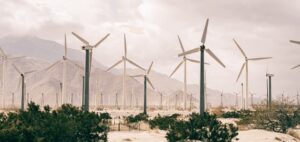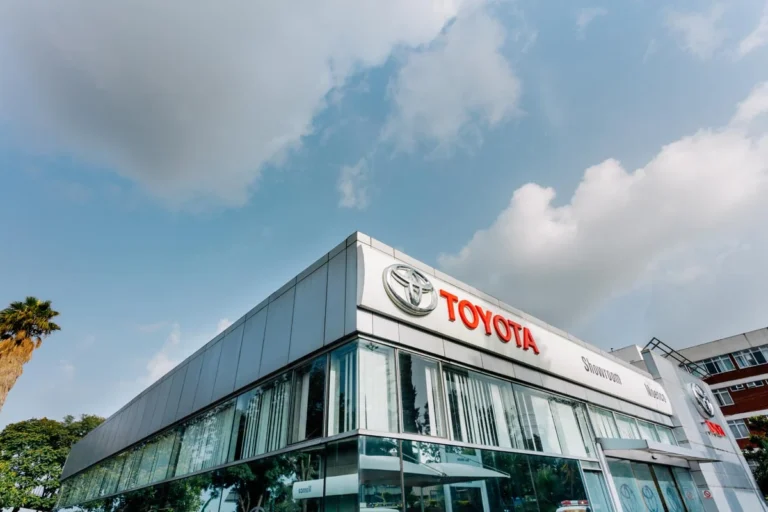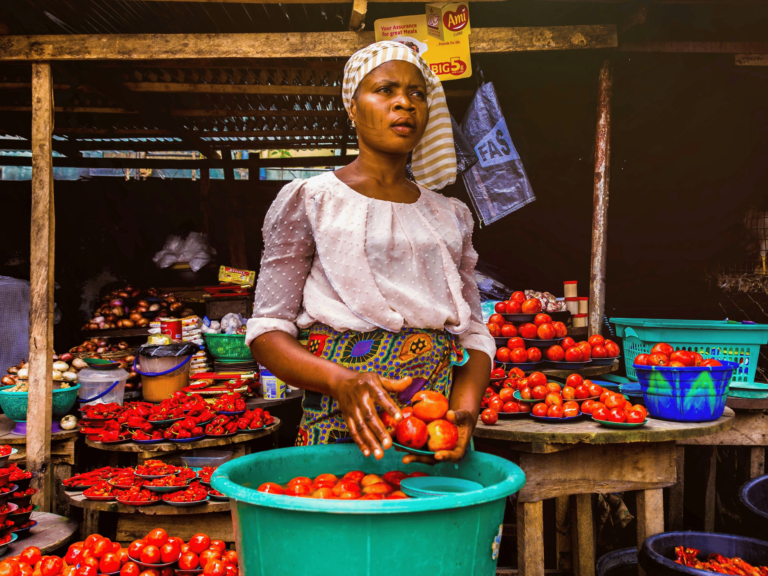Introduction
The African continent, recently grappling with unprecedented climate challenges, finds itself at the forefront of a global crisis. From devastating droughts to intense cyclones, the impacts have been severe, costing lives and disrupting economies.[1] The United Nations Office for Disaster Risk Reduction reports that climate catastrophes cost Africa 12.3% of its GDP between 2015 and 2021.[2] Shockingly, Africa’s 30 deadliest weather disasters have all occurred since 2022, attributing climate change as the primary cause.[3]
Thus, the Race to Zero (RtZ) campaign emerges as a key player in the pursuit of a sustainable future. This article critically examines the campaign’s structure and its implications for Africa’s unique challenges, questioning its alignment with principles of climate justice, energy justice, and a just transition and ultimately assessing its impact on the realisation of the right to development.
Unpacking definitions
Race to Zero Campaign
Net-zero is a carbon neutrality target that aims for all greenhouse gas emissions to be reduced to zero (or as close to zero as possible), with any additional emissions being reabsorbed by carbon sinks, by the year 2050.[4] The RtZ campaign, formalised by the United Nations (UN), is ‘a global campaign to rally leadership and support from businesses [and] cities […] for a healthy zero carbon recovery.’[5]
Climate Justice
The climate justice movement acknowledges that ‘climate change […] disproportionately affect[s] those in the Global South, who did very little to contribute to creating the problem of climate change in the first instance. Additionally, it notes that climate change ‘exacerbates [existing] inequitable social conditions’ placing already marginalised populations in more extreme circumstances of need.[6]
Energy Justice
The core tenants of energy justice are that an energy-just world ensures that the responsibilities, burdens and privileges of energy consumption and production are justly distributed.[7] Its main claims are that there should be (i) equitable access to the economic benefits of renewable energy systems (ii) that communities should have the right to make decisions regarding energy production and consumption and that there should be (iii) equitable access to low-cost and clean energy.[8]
Just Transition
Defined by the International Labour Organisation as ‘greening the economy in a way that is as fair and inclusive, creating decent work opportunities and leaving no one behind’ the concept intends to champion an economically, socially and politically equitable transition to renewable energy sources.[9] The African Development Bank’s definition of a just transition ‘affirms Africa’s right to development and industrialisation based on the Paris Agreement- negotiated language of equity and the principle of common but different responsibilities and respective capabilities’.[10]
International law
The Paris Agreement (PA), adopted by the UN, is the prominent international treaty regarding climate change, its main aim is to hold the increase in the global average temperature below 2 degrees Celsius and ultimately drive it down to 1.5 degrees.[11] Although the PA doesn’t explicitly reinforce individuals’ rights to sustainable development, it does buttress that any action taken towards climate change should ‘consider the respective obligations on human rights, the right to health, people in vulnerable situations, and their right to development’ essentially advocating for a climate justice approach.[12] It also notes that the PA must be carried out in a manner that reflects equity, ‘common and different responsibilities and respective capabilities in light of different national circumstances’.[13]
The African Charter on Human and Peoples’ Rights (Charter), however, explicitly reinforces rights to equitable and sustainable development as well as a healthy and favourable environment, positioning it as a progressive, vanguard treaty in the global pursuit for sustainability and sustainable development.[14] Additional norms such as the Rio Declaration on Environment and Development and the Draft Convention on the Right to Development (Draft), although not legally binding, reaffirm the importance of giving priority to the unique needs of developing nations, promoting sustainable and equitable development, protecting the environment and highlight the duty to cooperate in achieving these ends.[15]
Current Progress and African Participation
Globally, the RtZ campaign boasts the participation of 193 states, the EU, businesses, and civil society organisations (CSOs). However current global net zero targets only account for a future reduction of approximately 76% of global emissions, while actual national climate plans would lead to an increase of almost 11% in GHG emissions.[16]
In Africa, 49 out of 55 countries have signed the PA, but only South Africa and Malawi have committed explicitly to reaching net zero by 2050. The temptation to slate African countries for a tepid investment in global sustainability efforts must be tempered by questioning the campaign’s alignment with Africa’s priorities and capabilities. The reality is that 50% of the world’s GHG emissions come from seven nation-states: China, the United States, India, the EU, Indonesia, the Russian Federation and Brazil, while the entire African continent is responsible for only two to three percent of the world’s GHG emissions[17]
The Race to Zero Gaps: Unravelling the Challenges
Energy poverty
The glaring oversight of the RtZ campaign lies in its inability to resonate with the energy poverty crisis faced by over 640 million Africans. With an electricity penetration rate of a mere 40%, Africa stands as the region with the lowest access to electricity globally.[18] The RtZ, fixated on a global transition to renewable sources, seemingly ignores that many African nations are not burdened with energy overconsumption but rather struggle to meet basic energy needs.
A more nuanced approach, rooted in climate justice and energy justice, would instead:
1. Necessitate a shift from a universal transition to renewables to targeted initiatives.
2. Urge countries guilty of energy overconsumption to reduce consumption, transition to cleaner sources, and simultaneously electrify energy poverty zones with renewables.
As it stands, the RtZ’s primary goal appears relevant only to nations in the global north, side-lining Africa’s unique challenges.
Lack of Africa-specific data
The inadequacy of Africa-specific data in informing the RtZ is another substantial gap. Accurate energy systems modelling is pivotal for crafting timelines, technology choices, and infrastructure investments for a clean energy transition.[19] However, current modelling efforts often overlook discrepancies in resource availability and socio-economic conditions by grouping African countries together or with Middle-Eastern nations.[20]
The absence of contextually relevant data inhibits the functionality of these models in Africa, potentially leading to incomplete or misguided inferences about the continent’s future growth. Considering Africa’s development goals, the continent is most likely to increase GHG emissions over time, not reduce them.[21] Since most models focus on decarbonisation as the main goal, and fail to lay out strategies for low-emissions industrialisation, they are irrelevant to the African trajectory and ultimately endanger the realisation of the right to sustainable development and the potential success of the net-zero agenda.[22] This dearth of African-specific data not only underscores the global approach’s exclusivity but also hampers a climate justice approach.
RtZ lacks a clear cooperative plan for development
The RtZ falls short in integrating a cooperative development plan with emissions reductions, neglecting Africa’s industrialization and developmental needs. Divergent views among African leaders on adaptation financing, compensation for loss and damage, and energy source portfolios reveal a lack of consensus on the continent’s priorities. The absence of an inclusive decarbonization strategy for Africa poses risks, fostering disparate approaches, potential underdevelopment, climate injustice, and hindrance to global GHG mitigation goals. The principles of climate justice, energy justice, and just transition emphasize the need for equitable inclusion and economic benefit for all communities.[23]
Threats to Africa’s development trajectory
The natural gas debate
As Africa grapples with the challenge of green industrialisation, a significant debate centres around the role of natural gas in powering the continent’s development. Although not officially recognized as a renewable energy source, natural gas emits approximately half the CO2 and overall GHG emissions compared to traditional non-renewable sources.[24] The abundance of natural gas reserves in Africa, coupled with the necessity to industrialize, has sparked a debate on its classification.[25]
However, developed nations, during COP 26, pledged to end funding for all fossil fuel initiatives, including natural gas, by the end of 2022. This stance has left African countries at a crossroads, with the potential economic benefits of natural gas exploitation hampered by funding constraints and global commitments to defund such projects.[26]
Africa needs money
While the cost of renewable energy is decreasing, the transition to 100% renewable sources presents a substantial financial challenge. The United Nations Development Program estimates a net-zero transition in Africa would cost about $1.7 trillion USD by 2030.[27] However, Africa’s energy sector receives a meagre 4% of the global electricity investment, despite housing 17% of the world’s population.
The financial burden on African countries is exacerbated by the divestment of development finance institutions (DFIs), leaving them unable to meet the multi-trillion-USD funding requirements for the clean energy transition. The disparity further perpetuates the challenges faced by African nations in achieving their renewable energy goals.
Africa is dependent on hydrocarbon exports
A critical oversight of the RtZ is its lack of acknowledgment concerning the economic impact on Africa’s exportation market. Hydrocarbon exports, comprising coal, petroleum, natural gas, and tar, constitute 48.5% of total African exports.[28] The transition away from fossil fuel use, while essential for climate mitigation, fails to address the economic consequences for a continent heavily reliant on these exports.
The RtZ, by not actively promoting alternative markets for investment, poses a threat to Africa’s economic stability. As hydrocarbon exports decrease, African states need to pivot towards minerals and metals that support the global shift to renewable energy. The lack of strategic guidance in this aspect leaves Africa grappling with economic uncertainty.
The undue burden on African states:
A stark reality surfaces when examining the pressures imposed on Africa by the RtZ. Developed nations have, at times, applied disproportionate and hypocritical pressure on African countries to transition to clean energy sources. This is evident in instances where developed nations criticize African fossil fuel initiatives while maintaining extensive usage of such resources themselves.[29]
The RtZ’s failure to hold developed states accountable in proportion to their historical contributions to climate change raises questions about the genuine motivations behind these global initiatives. African leaders advocate for a fair transition timeline and assert developed nations’ responsibility to lead by example, emphasizing the need for a more equitable approach to climate action.[30]
Forging an Inclusive and Sustainable Path Forward
Make the RtZ more inclusive:
The first crucial step towards rectifying the gaps in the RtZ campaign involves reconvening global government and corporate leaders. The guiding principles of the RtZ should be redrafted through the lenses of climate justice and just transition, incorporating climate and adaptation financing, green industrialization, and clean energy investment.
Invest in Africa-centred research and better modelling
Addressing the lack of Africa-specific data requires increased investment in research and modelling efforts centred on the continent. Climate researchers, energy modellers, and environmental engineers from African countries should lead projects to collect relevant and locally contextualized data.
Increase finance for renewable energy sources on the continent
Richer nations and development finance institutions should redirect funding from non-renewable energy projects to finance the development of clean energy plants in Africa. This financial support is essential for African countries to embark on a successful clean energy transition.
Rich states first
To ensure an equitable transition mandated by the PA and the Charter, developed nations, with the resources and capital for an immediate shift to clean energy, should expedite their energy transition. This approach acknowledges historical contributions to the climate crisis and accelerates efforts to mitigate its impacts.
Promote economic opportunities and international partnerships:
Leapfrog to clean energy: African countries, still in the process of building energy infrastructure, have a unique opportunity to leapfrog to clean energy. Investment partners, governments, corporations, and scientists need to collaborate to facilitate this transition, allowing African states to address energy poverty, continue industrialization and realise the right to sustainable development. Secondly, it is crucial that African states pivot their trading investments to minerals and metals that support the international shift to renewable energy. One clear focus is electric transport, i.e. electric vehicles. African countries house crucial sources of metals needed to produce lithium-ion batteries for electric vehicles.[31]African countries ought to seek out business opportunities that offer economic benefits while also supporting the overall transition to clean energy.
Ultimately, the RtZ campaign requires a more tailored and inclusive approach for African states. Gaps in the RtZ campaign jeopardize the continent’s progress. Africa’s dependence on hydrocarbon exports and the undue burden on African states highlight the need for a nuanced strategy. To move forward, global leaders must refine the RtZ strategy through climate justice and just transition lenses. Investment in Africa-centered research is crucial, and richer nations should redirect funding to support clean energy development in Africa. An equitable transition, as mandated by international agreements, requires developed nations to expedite their energy transition. Promoting economic opportunities and partnerships, including a leapfrog to clean energy, and focusing on minerals supporting renewables, can address Africa’s unique challenges. In essence, a more tailored and equitable approach is imperative for RtZ to contribute to Africa’s sustainable future amidst climate change and developmental needs.
[1] Jeff Masters ‘Five of Africa’s top 30 deadliest weather disasters have occurred since 2022’ (Yale Climate Connections 2023) <yaleclimateconnections.org/2023/05/five-of-africas-top-30-deadliest-weather-disasters-have-occurred-since-2022/> accessed 20 June 2023.; Laura Paddison ‘Catastrophic drought that’s pushed millions into crisis made 100 times more likely by climate change, analysis finds’(CNN)< www.cnn.com/2023/04/27/africa/drought-horn-of-africa-climate-change-intl/index.html#:~:text=Catastrophic%20drought%20that’s%20pushed%20millions,by%20climate%20change%2C%20analysis%20finds&text=The%20village%20of%20El%20Gel,worst%20drought%20in%20four%20decades> accessed 20 June 20223; Nosmot Gbadamosi ‘Climate Change Wreaks Havoc in Southern Africa’ (Foreign Policy 2023) < foreignpolicy.com/2023/03/22/africa-cyclone-freddy-climate-change-extreme-weather/> accessed 20 June 2023.
[2] Jeff Masters ‘Five of Africa’s top 30 deadliest weather disasters have occurred since 2022’ (Yale Climate Connections 2023) <yaleclimateconnections.org/2023/05/five-of-africas-top-30-deadliest-weather-disasters-have-occurred-since-2022/> accessed 20 June 2023.
[3] Jeff Masters ‘Five of Africa’s top 30 deadliest weather disasters have occurred since 2022’ (Yale Climate Connections 2023) <yaleclimateconnections.org/2023/05/five-of-africas-top-30-deadliest-weather-disasters-have-occurred-since-2022/> accessed 20 June 2023.
[4] ‘For a livable climate: Net-zero commitments must be backed by credible action’ (United Nations) < www.un.org/en/climatechange/net-zero-coalition> accessed 20 May 2023; A carbon sink is any natural or human made thing that absorbs carbon from the atmosphere.
[5] ‘Race to zero campaign’ (United Nations Climate Change) < https://unfccc.int/climate-action/race-to-zero-campaign> accessed 10 June 2023.
[6] Daisy Simmons ‘What is ‘climate justice’?’ (Yale Climate Connections 2020) < yaleclimateconnections.org/2020/07/what-is-climate-justice/> accessed 28 May 2023.
[7] Energy Justice Workbook’ (Initiative for Energy Justice) <https://iejusa.org/section-1-defining-energy-justice/> accessed 09 July 2023.
[8] ‘Energy Justice Workbook’ (Initiative for Energy Justice) <https://iejusa.org/section-1-defining-energy-justice/> accessed 09 July 2023.
[9] ‘What is the just transition? And why is it important? (UNDP 3 November 2022) https://climatepromise.undp.org/news-and-stories/what-just-transition-and-why-it-important accessed 20 June 2023.
[10] ‘Just transition initiative to address climate change in the African context’ (African Development Bank Group) < https://www.afdb.org/en/topics-and-sectors/initiatives-partnerships/climate-investment-funds-cif/just-transition-initiative> accessed 22 June 2023.
[11] Paris Agreement (adopted 12 December 2015, entered into force 4 November 2016) art 2(1a); ‘What is the Paris Agreement’ (United Nations Climate Change) <https://unfccc.int/process-and-meetings/the-paris-agreement> accessed 10 July 2023.
[12] Paris Agreement (adopted 12 December 2015, entered into force 4 November 2016) preamble.
[13] Paris Agreement (adopted 12 December 2015, entered into force 4 November 2016) art 2(2).
[14] African Charter on Human and Peoples’ Rights (adopted 27 June 1981, entered into force 21 October 1986) arts 22 & 24.
[15]Rio Declaration on Environment and Development (adopted 14 June 1992) UN Doc A/CONF.151/26 (1992) principles 3, 5 &6. The Draft Convention on the Right to Development (15 December 1994) art 13.
[16] ‘For a livable climate: Net-zero commitments must be backed by credible action’ (United Nations) < www.un.org/en/climatechange/net-zero-coalition> accessed 20 May 2023.
[17] ‘For a livable climate: Net-zero commitments must be backed by credible action’ (United Nations) < www.un.org/en/climatechange/net-zero-coalition> accessed 20 May 2023; Richard Munang ‘Paris Agreement on climate change: One year later, how is Africa fairing?’ (Africa Renewal 2017) < www.un.org/africarenewal/magazine/may-july-2017/paris-agreement-climate-change-one-year-later-how-africa-faring#:~:text=And%20implementation%20has%20since%20started,%2C%20Tunisia%2C%20Uganda%20and%20Zambia.> accessed 26 June 2023; Jason Mitchell ‘The dilemma: How can Africa industrialise and reach net zero?’ (Investment Monitor 2021) www.investmentmonitor.ai/sectors/energy/the-dilemma-how-can-africa-industrialise-and-reach-net-zero/ accessed 20 May 2023.
[18] Jason Mitchell ‘The dilemma: How can Africa industrialise and reach net zero?’ (Investment Monitor 29 October 2021) <www.investmentmonitor.ai/sectors/energy/the-dilemma-how-can-africa-industrialise-and-reach-net-zero/> accessed 30 June 2023.
[19] Energy modelling is the process of building computer models of energy systems of physical spaces such as buildings or cities in order to analyse them; www.energyforgrowth.org/report/who-decides-africas-net-zero-pathways/
[20] Lauren Calver et al. ‘Who decides Africa’s Net Zero Pathways? Five ways to fix how we model African energy transitions and why it matters for climate and development’ (Energy for Growth Hub 17 October 2022) <www.energyforgrowth.org/report/who-decides-africas-net-zero-pathways/> accessed 23 July 2023.
[21] Rose M Mutiso ‘Net-zero plans exclude Africa’ (Nature 02 November 2022) < www.nature.com/articles/d41586-022-03475-0> accessed 21 June 2023.
[22] Rose M Mutiso ‘Net-zero plans exclude Africa’ (Nature 02 November 2022) < www.nature.com/articles/d41586-022-03475-0> accessed 21 June 2023.
[23] Mo Ibrahim ‘What Climate Justice Means for Africa’ (Project Syndicate12 September 2022) < https://www.project-syndicate.org/magazine/what-climate-justice-means-for-africa-by-mo-ibrahim-2022-08> accessed 25 July 2023.
[24] ‘Natural gas explained’ (U.S. Energy Information Administration) < https://www.eia.gov/energyexplained/natural-gas/natural-gas-and-the-environment.php#:~:text=Natural%20gas%20is%20a%20relatively,an%20equal%20amount%20of%20energy.> accessed 17 July 2023; David Christianson ‘Net zero is a problem for African development’ (Tralac 22 March 2022) https://www.tralac.org/blog/article/15569-net-zero-is-a-problem-for-african-development.html#:~:text=The%20possibility%20of%20a%20global,developmental%20possibilities%20of%20these%20resources accessed 17 July 2023.
[25] ‘Natural gas explained’ (U.S. Energy Information Administration) < https://www.eia.gov/energyexplained/natural-gas/natural-gas-and-the-environment.php — :~:text=Natural gas is a relatively,an equal amount of energy.> accessed 17 July 2023.
[26] David Christianson ‘Net zero is a problem for African development’ (Tralac 22 March 2022) https://www.tralac.org/blog/article/15569-net-zero-is-a-problem-for-african-development.html#:~:text=The%20possibility%20of%20a%20global,developmental%20possibilities%20of%20these%20resources accessed 17 July 2023.
[27] Jason Mitchell ‘The dilemma: How can Africa industrialise and reach net zero?’ (Investment Monitor 29 October 2021) <http://www.investmentmonitor.ai/sectors/energy/the-dilemma-how-can-africa-industrialise-and-reach-net-zero/> accessed 30 June 2023; Maxwell Gomera & Ahunna Eziakonwa ‘Africa needs carbon markets’ (UNDP 16 June 2022) < https://climatepromise.undp.org/news-and-stories/africa-needs-carbon-markets#:~:text=It%20will%20be%20expensive.,expected%20to%20cover%20these%20costs.> accessed 30 June 2023
[28] Leo Holtz & Chris Heitzig ‘The effects of the global energy transition in Africa: disruption and opportunity’ (Brookings 12 February 2021) < https://www.brookings.edu/articles/the-effects-of-the-global-energy-transition-in-africa-disruption-and-opportunity/#:~:text=Exports%20of%20hydrocarbon%20fossil%20fuels,export%20composition%20and%20trading%20partners.> accessed 12 July 2023.
[29] David Christianson ‘Net zero is a problem for African development’ (Tralac 22 March 2022) https://www.tralac.org/blog/article/15569-net-zero-is-a-problem-for-african-development.html#:~:text=The%20possibility%20of%20a%20global,developmental%20possibilities%20of%20these%20resources accessed 17 July 2023.
[30] Shola Lawal ‘The world needs to quit oil and gas. Africa has an idea: rich countries first’ (11 Nov 2021) https://www.nytimes.com/2021/11/09/climate/africa-fossil-fuel-gas-cop26.html accessed 23 June 2023.
[31] ‘Africa’s mineral wealth: a catalyst for electric vehicle value chain’ (Africa Executive) <https://africa-executive.com/thought-leadership/africas-mineral-wealth-a-catalyst-for-electric-vehicle-value-chain/#:~:text=Africa%20supplies%20a%20significant%20portion,iron%2C%20copper%2C%20and%20graphite> accessed 15 July 2023.





